Episode 289 - Kids' Sports and Other Hidden Idols with Patrick Lencioni, Henry Kaestner, and Justin Forman
In this edition of the “riff,” Patrick Lencioni joins Henry Kaestner for a short conversation about some of the hidden idols of entrepreneurship.
Then, Joey, Justin, and Henry dive further in, examining how we easily turn good things into gods. Justin and Henry share how they have learned to fight against the temptation of “safe” idols by practicing disciplines of confession, community, and prayer.
Want to join in on the riff? Send your thoughts to podcast@faithdrivenentrepreneur.org or comment on our LinkedIn. We’d love to hear from you.
All opinions expressed on this podcast, including the team and guests, are solely their opinions. Host and guests may maintain positions in the companies and securities discussed. This podcast is for informational purposes only and should not be relied upon as specific advice for any individual or organization.
Episode Transcript
Transcription is done by an AI software. While technology is an incredible tool to automate this process, there will be misspellings and typos that might accompany it. Please keep that in mind as you work through it.
Joseph Honescko: Have you ever had an idol sneak up on you? The things we worship typically have this kind of trickster quality to them. They're not always as obvious as we'd like. And when we think of common entrepreneurial idols, we might picture things like greed, money, or power. But what about some of those unexpected things that take our affections? What about the good things that we turn to gods. Even something as innocent as our kids sports teams. How do we stay aware of these kinds of things that creep into our hearts? And more importantly, how do we see the joy that comes when we put these idols in their proper places and keep God at the center of our worship? In this episode of the Faith Driven Entrepreneur podcast, we're riffing on some of those insidious idols. We'll start with a conversation between Patrick Lencioni and Henry Kaestner before Henry, Justin and I further unpack some of these concepts. As always, we want to hear your thoughts too. So jump into the rift by sending your comments to podcast at Faith Driven entrepreneur.org or commenting on LinkedIn. I'm Joey Honescko and you're listening to the Faith Driven Entrepreneur podcast. Let's get into it.
Henry Kaestner: Before we went on camera, Pat and I were just talking about the challenges of being an entrepreneur and being a parent and getting sucked into the youth sports vortex. Some number of our listeners right now know exactly who we're talking about, but we had similar sports. We both, share our kids, share passion for lacrosse and in soccer, you know, if I'm honest, at times that's become an idol for me and a big challenge for me and, guys working through it. And I think he's going to redeem it. And yet, when we talk about the cost of discipleship, when we talk about what it looks like to take up our cross in an appropriate way, and, and we also know that Jesus's yoke is easy. But yet when we talk about being willing to have costs, I think about some of the folks that are potentially losing their lives for their faith. And this happens around the world. And it yeah, makes me think of one particularly embarrassing story in my life. 12 years ago, I met a friend of our Bobby Gruenewald. We met each other at this conference called the Lausanne Conference in Cape Town. But my kids, who are probably three, five and seven at the time, had used soccer. On Saturdays. They're playing soccer games. So it was a conference is going on for ten days, but I didn't want to miss any of their soccer games. So I went to the airport when the third soccer game was gone, and I made it back in time to catch the next soccer game. Yeah. While I was in Cape Town, having missed a good third of the conference and incredible time, end up meeting this guy named Farhad, who is Iranian. And we went on a mountain bike trip about ten of us together was amazing. And he got a flat tire. And during the two hours it took for the folks to find us to repair the flat tire, he talked to us about what it look like to be a believer in a closed country, and how every two weeks he needed to move to a different place. And I sat there just listening to him and just being in amazement about it. So, as you now know, I left the conference just a little bit early. I got back and I made the soccer games when he got back from the conference. He's put in jail for the next 11 years. He didn't see a single soccer game. Yeah. And I think about where are my idols? What are the different things that might otherwise hold me back now? To be clear, being a great, involved parent is incredibly important as a faith driven entrepreneur no ifs answer and buts about it. And yet, when I think, and we've talked about this before in other segments, about all of a man's ways impure, but his motives are weighed by the Lord. So much of my identity gets wrapped up in the performance of my kids. Oh, gosh. And maybe this happens to you. Maybe it happens to you. I won't throw you into it. But, you know, there's a once every 20 year conference on global evangelization. You probably can miss a soccer game.
Patrick Lencioni: Yeah. Well, and they think you can, too. What I realized since then is because I look back in my life, there was the same thing. You know, I think there's certain sins, if you will, that we don't even recognize as sin. Like. I don't think we worship sex. I think society does. But I think if you're a follower of Jesus, you know, that's not good. And greed is not good. But it's pride that's the root of all that. And the sins that are still not seen as sin are like worshiping your children. Which they don't want, but we do it because like. And then worshiping knowledge. That's just as much of worship as anything else, but it's still considered positive. But anything that separates us from Jesus is bad. Yeah, and I love who said it was Saint Augustine who said, whether a bird is tied down by a string or by a chain, it doesn't matter because it can't fly. So you and I go, oh, it's just a string. It's youth sport or it's knowledge. It's like, it doesn't matter if it's drugs, alcohol, pornography or achievements. It all prevents us from being with God. I just heard this recently. So there was this Catholic family in China, but they weren't allowed to be Catholic. So they had an underground church which is in their home. Yeah. So they bring this priest in and the police would show up and they would scatter. And one day the police showed up and they didn't scatter in time. And the man who owned the home, not the priest, got taken to jail. And they abused him. They tortured him. They kept him there. They said, tell us who the priest is, because that's what they really want to do. They wanted to go after the priest. He wouldn't do it. I mean, they tortured him. They let him out. And he ended up getting the opportunity to move to the United States. So this was a man that was willing to give up his life in order to not sell out the church. He comes to the United States and he's like, oh my gosh, I can go to mass every day. There's daily mass here. So he does that for a while, and then he goes, but I want to build a business. So I'm just going to I'm going to start going to Mass on Sundays. Okay. That's fine. And then he says, oh, if I kept my business open on Sundays, I could make a lot more money. And so we stopped going to church. And he realized. He said they threatened me with torture in China and I would not cave. But the comforts and the conveniences of business and modern life in the United States took me away from God. It's the convenience. It's the. I don't want to be excluded. Yeah, yeah, is in many ways more powerful because anything that separates us from God is bad.
Henry Kaestner: And it's insidious, right? Because it's like it's in the parable of sowers right. It's divine. They come up slowly, right on growth too terribly quickly. It happened very, very slowly. Just gradually kind of takes you over. And we know if we can just make it through that final thing because you were talking about before, like the parable of the sower, like you know enough to be able to maintain your faith so that if the crows come and take the seed, you'll make it through that. But if we can make it through that final step, then we get a return that's 100, 60 or 30 fold. That's a big deal.
Patrick Lencioni: The enemy is fine if I make it to level three. I used to hear that every year at mass and I'd go, hey, I made it to level three. I mean, that sounds silly, but I would go like, well, at least I didn't stop at the first two. Yeah. And I look around and I know a lot of people have stopped at the first two, and it was like one day I was at mass. I was like, oh no, I have to get to level four. It's time to let go of the cares of the world. And. That is hard, but I think it's God's mercy that's bringing this around because he's like saying, I want you to choose me.
Henry Kaestner: So I love the fact that we're doing this together, because I know how that much more of a fighting chance because you're challenging, encouraging me to get to level four. And hopefully our listeners will be encouraged and challenged to do the same. And may we all do it for God's glory, but may we all do it so that we might be able to have a return for his glory of 100, 60 or 30 folds and what does that look like? We don't even know because it doesn't say whether it's financial or not. Maybe it's in being able to see people we care about coming to know Jesus. Maybe it's just being able to see the product or service we make be able to redeem something that's broken,
Patrick Lencioni: and maybe we won't be around when it happens. Yeah, maybe the benefits of that. But we have to just trust that it's going to happen in God's time. But we have to do our part, right?
Henry Kaestner: That's right, that's right. Awesome doing this with you.
Joseph Honescko: All right, so you just heard Patrick Lencioni and Henry Kaestner talk about, really a variety of things, the insidious idols that kind of creep in, these subtle sins that we maybe miss on. And we're going to unpack that here. I've got Justin and Henry to dive in with me, and this will be another edition of the riff. So chime in with your thoughts by emailing. Podcast at Faith Driven entrepreneur.org or commenting on our LinkedIn post about this episode where we're talking about the cost of discipleship and one of the easy ones that come up for faith driven entrepreneurs when we think about sins and idols could be money or power or workaholism. But, Henry, you said something in that conversation and you talked about the youth sports vortex and getting caught up in that, in the way that as entrepreneurs, maybe we're coaching our kids or maybe, we're just living vicariously through them. But what do you mean by getting caught up in that youth sports vortex?
Henry Kaestner: Well, before we go there and you can tell me, hey, this is not at all part of the recession that we scheduled, and you would be 100% right. But I'm thinking about the cost of discipleship. And I like talking about the cost of discipleship, but I like talking about the return, the benefits of discipleship. And maybe that has some overlap with what we're talking about here on, because on one level, I can't have my entire life focused on doing everything to make sure I maximize being at my kids sporting events. Although, to be clear, I get a chance to do a lot of that. But when it's in its rightful order, I think that as I deal with that idol and with everything else that might otherwise be thought of as a sacrifice or as a cost, there's a much greater benefit in return than I get from discipleship. So that may just be me trying to work in that whole concept of cost of discipleship. But the benefit for me, and what will ultimately drive me to different types of attitudes and behaviors, will come from the joy that is set out before me. If I reorient my priorities in life, and when I do that, then I have more of a joy filled life. So it's not so much taking up my cross and bearing it, although there's an element of that, of course, in our Christian faith. But it's the life that's fully life. And I'll tell you, one of the things that has held me back from the life, that is fully life, is by placing too much of an emphasis on sports and part of it. I mean, I tell you, I've had great joy, and I think God given joy on the sideline of athletic events. And all my boys play almost all the sports. But lacrosse has been kind of our family sport. And there's something about, number one, is this incredible sport that was created in honor of the creator and unlike any other sports origination story. And then there's the concept of going off in a battle with sticks are almost like a weapon, right, type of thing. And it's so many beautiful things about the sport of lacrosse that I just really, really love. And just to be able to be there, celebrating that battle with my boys and seeing that happen, it's been really, really great. And yet I have taken that good thing. And to be clear, it is a good thing. And all too often I've made that into the thing. And there are times where I just I'm celebrating with my boys and it's great, and we just kind of go on to the next thing, and it doesn't take too much of an order. And there are other times I'm ruminating on it. I remember that adrenaline hit that I had one maybe, say my youngest one, Graham, is particularly successful and we get MVP of a tournament or state All-American or whatever the case is. And then I find myself in the weeks to follow, having had an emotional high from that, and then just obsessing about that and trying to relive that moment again and again in my life and trying to figure out how to get that again. You know, how do we get them another tournament? Oh my God. Or we go to another tournament? Wasn't named MVP like oh gosh, I can't believe he wasn't named MVP. And. Well I mean there are a lot to it's a team sport. There's lots of things that go in and I find myself on the unhealthy side of being a sports fan or a sports dad in a way where I like, oh my goodness, that's not helpful. And. Yeah, just in your sports, dad. Not only your sports dad, your sports coach. So you see it from an altogether different angle. You see it through your three children. But then you get an opportunity, whether you like it or not, to interact with 15 or 20 parents every time. Oh.
Justin Forman: Yeah. It's, you know, it's been a fun journey. I mean, when I think about the early days of when we were building right now media, there was so much time on the road that I feel like I missed some of those moments and missed some of those opportunities, and there's no greater way to kind of find and recapture those moments than to sign up to coach. And so for me, it's been a joy. I mean, gosh, when we were estimating at the other day, I think it's probably been like a thousand games and ten years of coaching from soccer. And for basketball, you've got those weekends where you're coaching 4 or 5 games on a Saturday and there's there's so much joy in it. And, you know, I think as we're thinking about this conversation about like FDE students, we're talking about this new series and this new course that we're developing to help students at a young age understand, embrace their call to create their identity in Christ and everything at that younger age. And I think as we venture in that path, we got to look at what is the role that sport often plays in that process for so many, I think it's so huge in developing great habits of teamwork and competition and some constructive things and hitting adversity and resilience, but I think there's also an element of it. Like as you're saying, any good gifts can become an idol. And I think what's crazy is as parents, I think oftentimes we're guilty almost trying to help our kids find a safe idol. We're at that stage. We're out of fear. We don't want them to go to this path. We don't want them to go that path. We're afraid of, you know, getting in the wrong crowd. So we almost are trying to help them find this safe idol that just worship this idol for a couple of years. Be safe, stay out of trouble. It'll be great. And then surely you'll be able to disconnect from all the achievement, the adrenaline hits of everything of what you've talked about, and it'll be just fine. And I don't think that's the case. And I think that we have such an opportunity at a young age. And as parents, I think it's on us and some extent of saying, how do we put those things in that proper balance and that that is a tough thing to do, as you said, that we're struggling with ourselves still 20, 30 years later as parents. Yeah. But how do we help them guide them in this one? I think it was like one of the first formative identity shaping conversations, because it is you have an identity in a position, the role you play on the team. Are you on offense? Are you defense? And with that, all of a sudden it's prescribed a bunch of values over your point guard? Oh, you must be fast and shifty in this. Oh, you're forward. You must be this and this and this. And it's amazing how much I think this. It's an identity playground that's playing out there right in front of everybody, and everybody is there to see it. And it's a wild, wild thing. There's so much broken about youth sports, and yet there's so much good about it. And I've tasted both sides of it as a dad, as a coach, and there is nothing to take away the opportunity that it is. But I think it's a moment for us to recognize there is a massive identity shaping conversation that's happening, whether we notice it or not.
Henry Kaestner: You find it so much to go off on that we could spend an entire podcast just talking about what it looks like to be a coach, and to see parents that seem to have that imbalance and parents that seem to not have that balance. I'm sure you've had all sorts of people coming to you tell you about playing time, and a frustration that goes beyond an eight year old girl soccer game, right? You know, like, oh my goodness, yeah. How can I help introduce you to a therapist. But you also because we've hung out so much in the past and we are both sports fans. You have a term that I like a lot, which is that my kids are likely to go pro in something other than basketball or soccer. Oh yeah, which means you're going to go pro and something else. How do you have that conversation with yourself? Because on one hand, because we're talking about idolatry here. On one hand, you'd love to see one of your children succeed at the highest level. Right. And yet, on the other hand, you trying to help yourself understand that that's not maybe the right expectation for yourself and for them. Where does sports play in all that? How do you wrestle through that?
Justin Forman: You know, I think, first of all, to give trademark rights to where it's due, the NCAA slogan, we all go pro in something other than sports. It may have been something
Henry Kaestner: It was not you?
Justin Forman: I wish.
Henry Kaestner: So disappointing.
I know, I know, I got to throw that on the table. But years ago there was a campaign that talks about that before that [...] era and everything went money and all that direction. There was this idea, they're trying to say there's another identity here and that we're preparing for what's next. And I'll admit it, like, I mean, there's been many times and seasons where you get into it, you get wrapped up in the competition of it, the standings, the playoffs, the stunt, whatever. And you want to win and you want to compete and you want to win. I would say recently, as our kids are getting older and you starting to see for some of them, the window is closing, you start to realize that you're you're creating moments, you're creating those identities and like, well, two stories, two quick versions of that one joint. Henry. No, that's like my title, the Pixie Chicks. Girls soccer coach. That was a name thrown on me. Not by my choosing. That was my wife's obviously as uniform coordinator she picked. But it was a fun season we coach these girls for probably, I don't know, 7 or 8 years. We get to this championship game and you talk about creating moments and I will just never forget this one girl that had been playing just a heck of a game, one of our best players, but she was getting beat by this girl on the side. And she was in this game where it's a 1-1 game. It goes to overtime and she comes on the sideline right before overtime. She's crying tears, bawling out. She's just like, coach, I can't do it. I can't do it, I can't, I can't, I can't on my left foot. I'm not as strong I can't do it on this side. Move me, move me. And you have that moment to say you're not seeing what we're seeing. And what we're seeing is you're wearing that girl down. And I think it's about to break. And she's like, wiping away the tears. She goes back out there and you wouldn't believe it. But then a couple minutes later, she beats this girl using her left foot, cuts it inside, makes a move, and shoots the shot right over the goalie in the upper corner. We win the championship and she just is screaming. She runs over and she's basically saying, I can. I did, and you could just see that light bulb click. And there are a few things in the years of coaching that give just great joy then to tell that story to her dad. To see that moment, to see this girl just be equipped, to be empowered, to feel that feeling of you could. And sometimes it comes that way. But then I'll tell you on the other side of it, we had a basketball game yesterday. I won't tell you what the score is. It was rough. We got smoked. It was terrible. But what was fun for me is probably five years ago I had just been going crazy. But we're sitting there with our good friend assistant coach that we're coaching together with, and we just have that moment as you're watching these girls learn through resilience. And I just don't think we have a playground for that. Enough. I was struck by two things. I'll finish with this maybe I hand it back. We're with Jeremy Lin a couple weeks ago. We're filming some of his story in Taiwan, and he was talking about this idea, and we were asking him for thoughts and perspective on the student series. And he just said, if I could give one piece of advice, he goes, you know, I'm not a parent, but if I could give one piece of advice, it set your kids up to fail and fail often.
Henry Kaestner: And through adversity.
Justin Forman: Yeah. And then you heard it a couple of days later, the CEO of Nvidia was talking about this at a conference, and he's saying the same thing. It's like we do not encounter resilience enough. And how do we set our kids up to experience resilience? And I think that's something that I'm going through right now as a dad, is just like, how do I set my kids up for that resilience? How do I be there to help them? But we just don't we do not set our kids up for that enough. And so we try to make it safe. We de-risk everything. And I think that there's something to be learned for the opposite.
Henry Kaestner: I tell you, you tell them about this story, about this soccer girl. And maybe this is because I'm a parent of three boys, and I just I don't completely get it, but my heart right away is about the other girl who's been worn down is about to break. And what you're suggesting is that there are lessons to be learned in overcoming adversity, which was on your side, but also on the flip side, and that athletics allows us to have an opportunity to do that in an environment if we are able to steward our children through those moments. But we need to steward ourselves through them too. And so question for you, Justin. You know, I'm fond of saying with the parable of the sower talking about the thorns, right? It's the worries, the world, deceitfulness. My problem, of course, is that the thorns that are growing up around me that would otherwise strangle me out for the 30, 60, or 100 hundredfold return, are invisible to me. And the only way I can see them is if I've got buddies of mine or that are there to point them out. What does that look like for an entrepreneur listen to this podcast is like, you know what? I probably have an issue with this. Some of the things Henry is talking about, about ruminating about why his child didn't get, you know, some sort of an award or ruining why, you know, the kid didn't get more playing time or whatever. Realizing that that's not completely healthy. What do I do about it? What would you say?
Justin Forman: It's gonna sound weird, but have a dinner table conversation with your spouse and talk game time strategy with them. And it's like when you start talking game time strategy with your spouse about what what kind of press you're going to run, what kind of half court trap, what kind of man defense you're going to run, and then you just start talking about the team and you start talking about things, and you start talking about what's going on. I tell you, it has been very convicting for me that when I get in those conversations that she is able to say, oh, I can see kind of what we're after or, hey, you're carrying a little bit too much about the outcomes of this or that and the seeing those blind spots. I mean. I don't think that most of us have a healthy enough perspective on sports to even know what the blind spots look like, or to even see them. And sports is one is beautiful game. It's a beautiful game that gets you so wrapped up, so intoxicated with your emotions. I mean, there are few things in life that deliver such highs and lows, emotions delivered seconds or minutes apart. Yeah. And when you have that, I don't think that you're in a sober enough place to really understand what's happening around you. Like, I mean, there's videos of, like when we won a big game of me celebrating heck, for you, even [....] celebrating whatever it is that you just realize you didn't even remember how much you were into it. And I think so much it's like we talk about in FDE, just like in partnership. And so whether it's a spouse, whether it's an assistant coach or somebody that's going to keep that grounded. I think for me it's I'll put it this way. I get wrapped up in those moments. I know we all do. Yeah. My hope for the years ahead is to create moments that something that somebody talk about in a way that like you've got, you know, picture frames in the wall of moments that mean something. How do you create and be a collector of moments with the families you're around, the kids around? Because I think few people, I mean, the ribbons get thrown away, the trophies get thrown away. But there's occasionally that moment or two that people really latch on to saying, like, man, I learned something through that. So I think the sobriety of having somebody that you can talk to about that as a big thing for me.
Joseph Honescko: There's an element of that that's really confessional too, right? I mean, like going through that conversation, game time strategy with the spouse or within community in some kind is almost confessional. If you're saying like, hey, look, I know that my heart wants this kind of thing, and I need to reorient that. I'm thinking of like the role of confession and repentance in this space because we're talking about hidden idols, these things that can entangle us, that we don't really even notice are happening to us. And it seems like the role of confession and repentance would be the big part of that. And I think maybe we close our eyes and picture confession and think of it as like, you know, going to a booth with a Catholic priest. But it could be those dinnertime conversations with the spouse or with an assistant coach, or just kind of confessing to the people that know us. Is that similar to what you're saying, Justin?
Justin Forman: Yeah.
Henry Kaestner: Or you get on a podcast and confess it to thousands or hundreds and hundreds, thousands of people?
Justin Forman: You know, I think. I mean, listen, I think there are things in, you know, ten, 20 years ago, five years ago, five days ago, I don't know at the time, as I think you could probably be convicted, all of them, that there are moments where the outcome of an event would affect me. That's just not right. Right. Like, I mean, like last night to date this episode, I mean, a team I care deeply about. Baylor basketball lost a game. I'm wrapped up into it. My 15 year old wrapped up into it. We are diving into it, and I've got date night with my wife, with three scheduled right after that. And so, you know, she was gracious. We move the times or whatever it is. But we went out right after that.
Henry Kaestner: You left Tristan to sit there and wallow in his loss while you went out on a date night with your wife.
Justin Forman: I know, bad parenting decision. Great marriage decision, which in fact.
Henry Kaestner: Great marriage decision. I love that, you know, I was wrestling is you're talking about the marriage, you know, so Kimberley tends not to be as involved in sports as I am. And yet she still has some of the same idols. And so I was wondering, you know, the concept of talking about this with your spouse, which is always, by the way, always a great thing to do. But there have been times when Kimberley is actually more into it than I am, and that actually helps me to see the challenges that I have in dealing with it, because Kimberley is not completely immune to it. And then I'm like, oh my goodness is probably, you know, that feels like a little over the top. I bet you on the other 90% of the times when I'm over the top and she's not, that's what it looks like a little bit. That's actually helpful. And the other thing that's helpful is I've got a buddy of mine who doesn't give a hoot about why he's got two boys, but his boys don't play sports at all. And just talking to him about what's going on. And then he'll talk about some of the things that he's wrapped up into. And I'm like, you know what? Okay, so you know, Joey, your point by him repenting and confessing some of his idols, it helps me to see more clearly my own. Yeah. So I think that as with anything else, it's, you know, about having a good community of men and women who share your faith, who you've given permission to hold you accountable, knowing that if left to your own devices, you can end up having any host of a number of idols, but having people who love you enough to help point that out to you when you need it pointed out, and I too often need that pointed out. And I don't have enough people in my life that I've given permission to to really call me out. And so that's what I need to do. I need to recognize it for the idolatry that it can become. I need to recognize you sports for the amazing awesomeness that can be, too. I mean, these are young men going off into battle. Kind of like what you see, David, and nobody's going to die, right? And they're learning life lessons about adversity and victory. And how do all those things youth sports is awesome, but I need a group of people to hold me accountable, starting with the people who listen to this podcast. So let us know where we hit on it, will let us know where we missed. And so, as Joey encourage you to do, just email us, comment on this on LinkedIn. Let us know how you think about this as well.
Joseph Honescko: Yeah. And as we as we kind of come to a close here, I'd love to just get one real, I don't know, practical doesn't seem like the right kind of question this is going to be. But, you know, again, we're talking about something that is hidden. Henry, you just said we have to recognize these patterns in our lives, and that can be difficult. So I'd love to just get your thoughts on how do we, I guess, have the eyes to see how do we keep our eyes open to see, not just with youth sports, but any of these hidden idols that we maybe overlook because we're so focused on the other larger things that we're trying to avoid, you know, love of money, the pride, whatever, all these other things. How do we keep our eyes open for these more subtle idols?
Henry Kaestner: Well, it's doubling down on the community of people that you've given permission to ask you those types of questions about exploring them, and then just finding the times where you feel that with a healthy distance removed from the event, you're finding that you're still ruminating and just like, is this healthy? And so these are my thought patterns, healthy or not. And so we know that if we have lust issues, that some of those thought patterns are definitely not healthy, we cancel those out. But the thought patterns about whether my kid got overlooked or got this on or didn't whatever or didn't perform anything like that, we need to be just as vigilant for this being just as much of a sin issue as being something that takes us away from God, is that any of the other things that are more commonly talked about?
Justin Forman: Yeah, I think I just jump on with that idea of like, let's be careful that we don't recognize that we trade a known idol for a safe idol. There's so much good about sports. Like, as Henry said, I don't want to take anything more. There's no greater playground for people to learn about failure and develop resilience. But let's not trade a known dangerous idol for a safe idol. And I think that we just have to have that eyes of thinking, okay, everything that is a good gift from God above can be misused in that. And, it's the tension of life. But let's just recognize there's so much identity shaping information and competition there that's happening. And not to say that like you're looking for participation trophies, but like a five and three season might be better than an undefeated season because it develops some sort of resilience. There might be other ways that you can look at lessons in this, that can set your kids up for a whole lot better platform, and help yourself as well, to make sure that this isn't going to be the thing that makes your weekend wreck. Your weekend takes away from your time with your family.
Joseph Honescko: Yeah. Not making it all about the outcomes. Appreciate both of you. Henry, you said something at the beginning of this that's just worth reiterating. Is that the only way for this stuff to really change is if we see the joy in the love that comes from a changed life. This isn't a matter of trying to cut things out of our life just for the sake of cutting them out, but rather it's something that is saying, hey, the good and true and life to the full is on the other side of this. So just a reminder as we're talking about these things, it's not something just to cut, cut, cut away, but add something beautiful. And sometimes that takes having the eyes to see of what needs to be pruned. So thank you both for joining us. And yeah, we'll, catch you all next week. Thanks for listening to the Faith Driven Entrepreneur podcast. Our ministry exists to equip and resource entrepreneurs just like you with content and community. We know entrepreneurship can be a lonely journey, but it doesn't have to be. We've got groups that meet in churches, coffee shops, living rooms, and boardrooms around the world. Find one in your area or volunteer to lead one and bring this global movement to your own backyard. There's no cost, no catch, just connection. Find out more at Faith Driven entrepreneur.org.





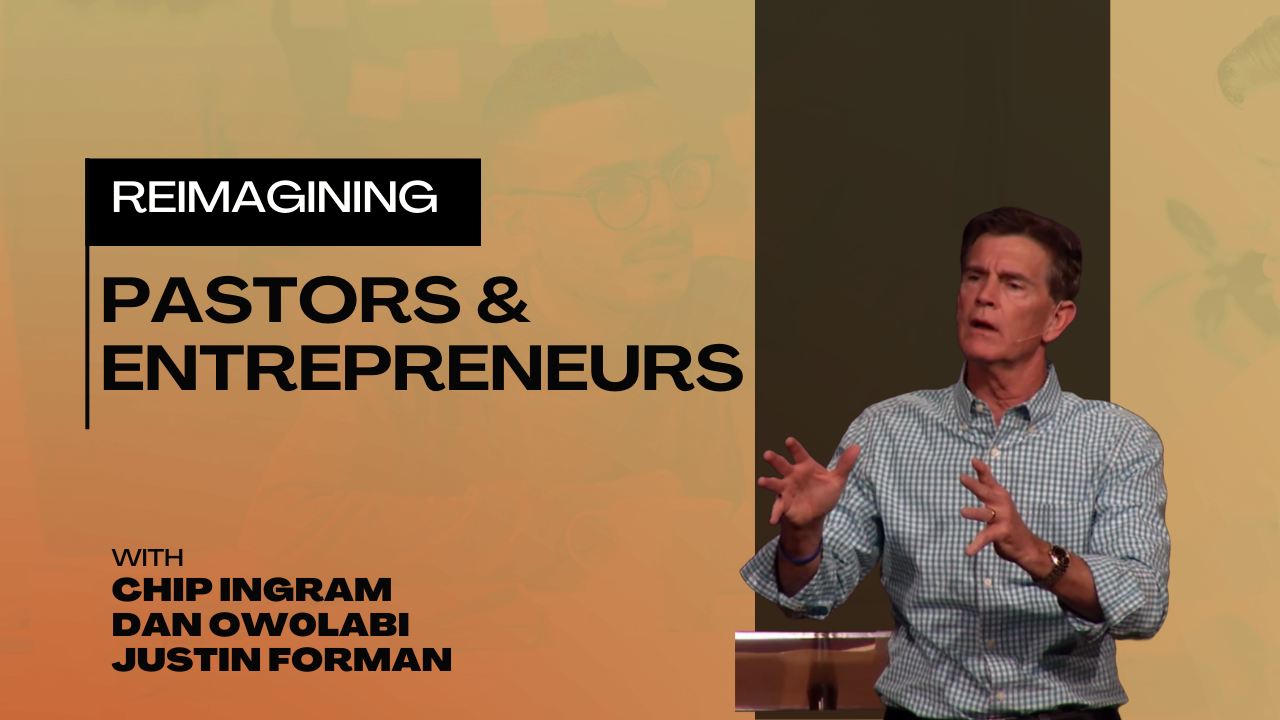
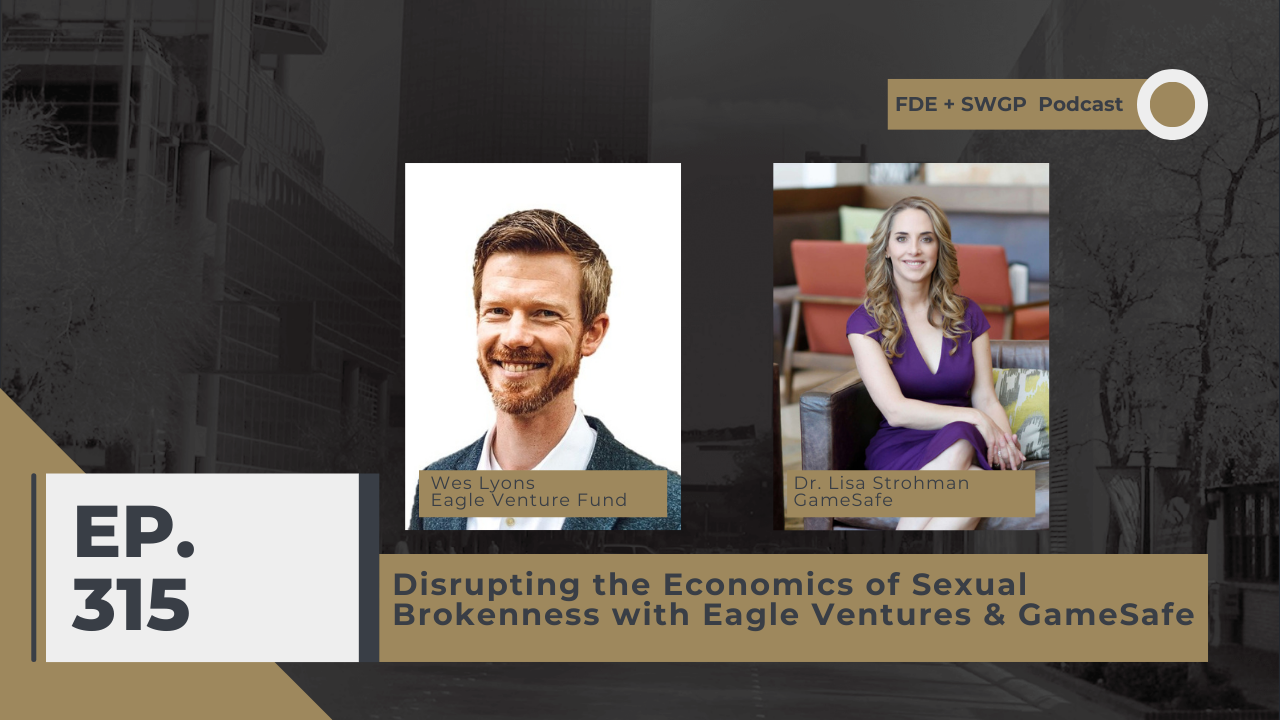
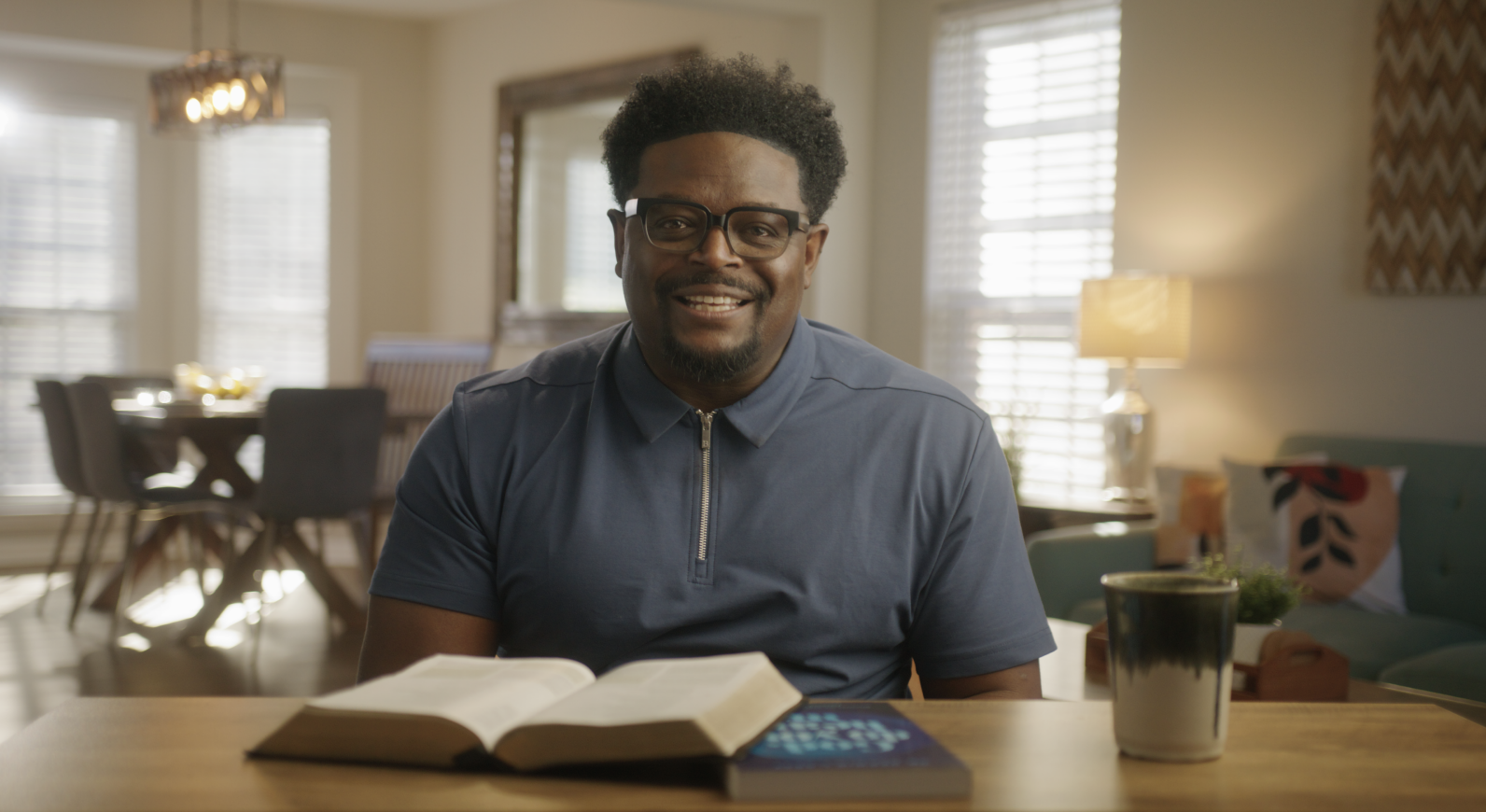
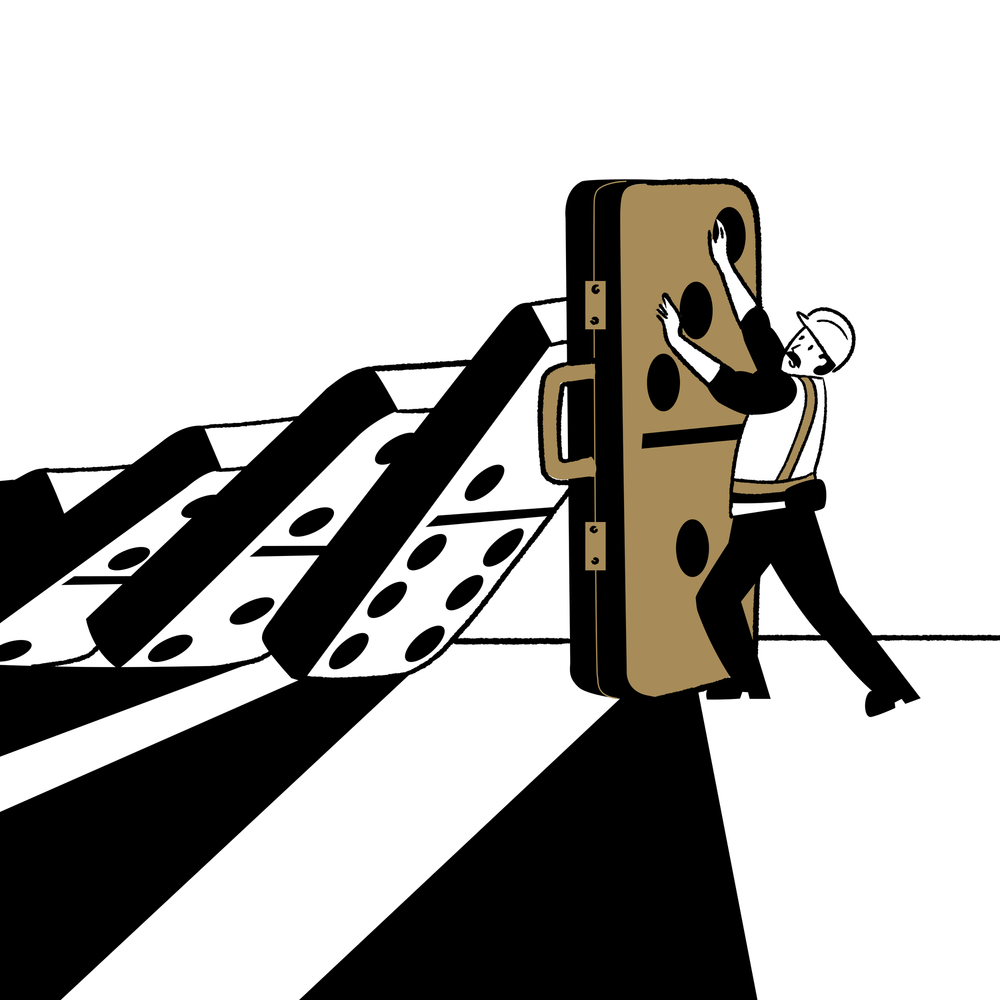
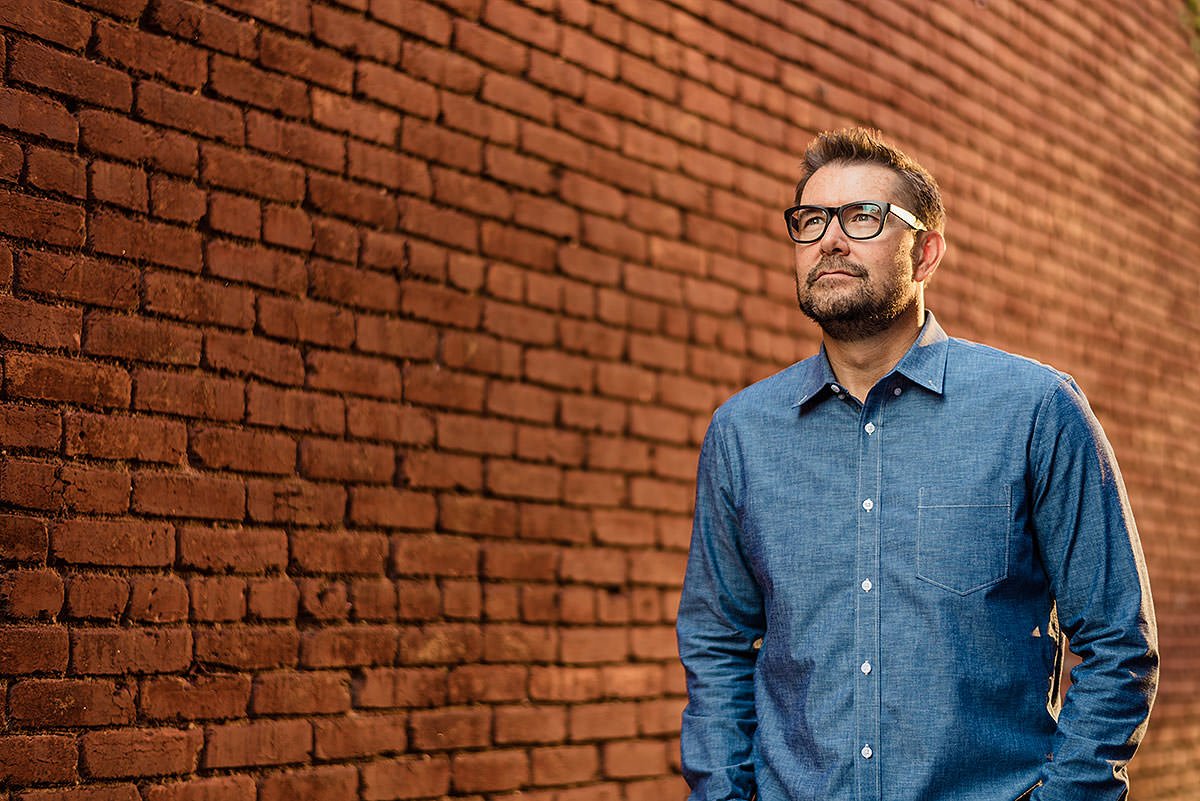
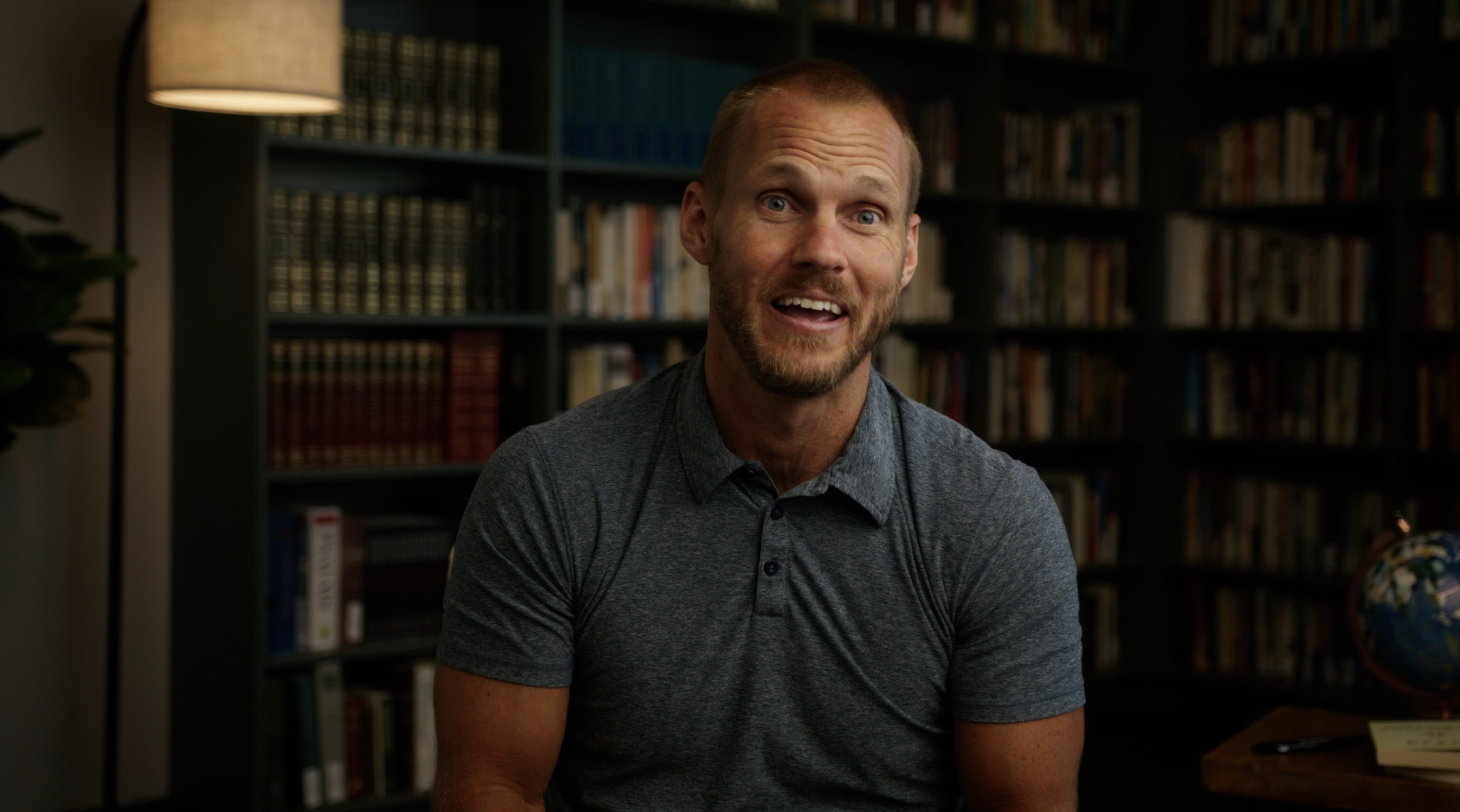
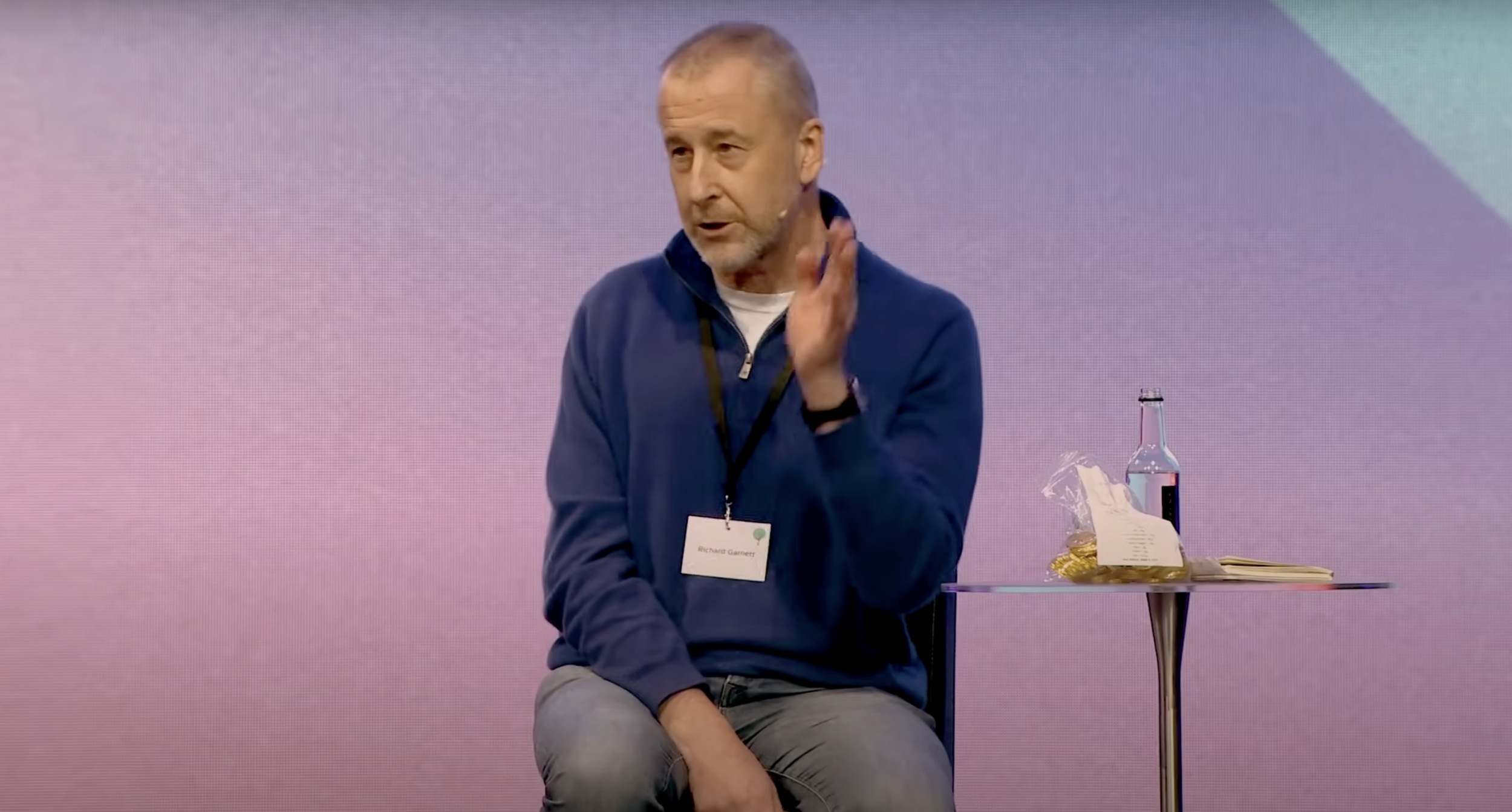
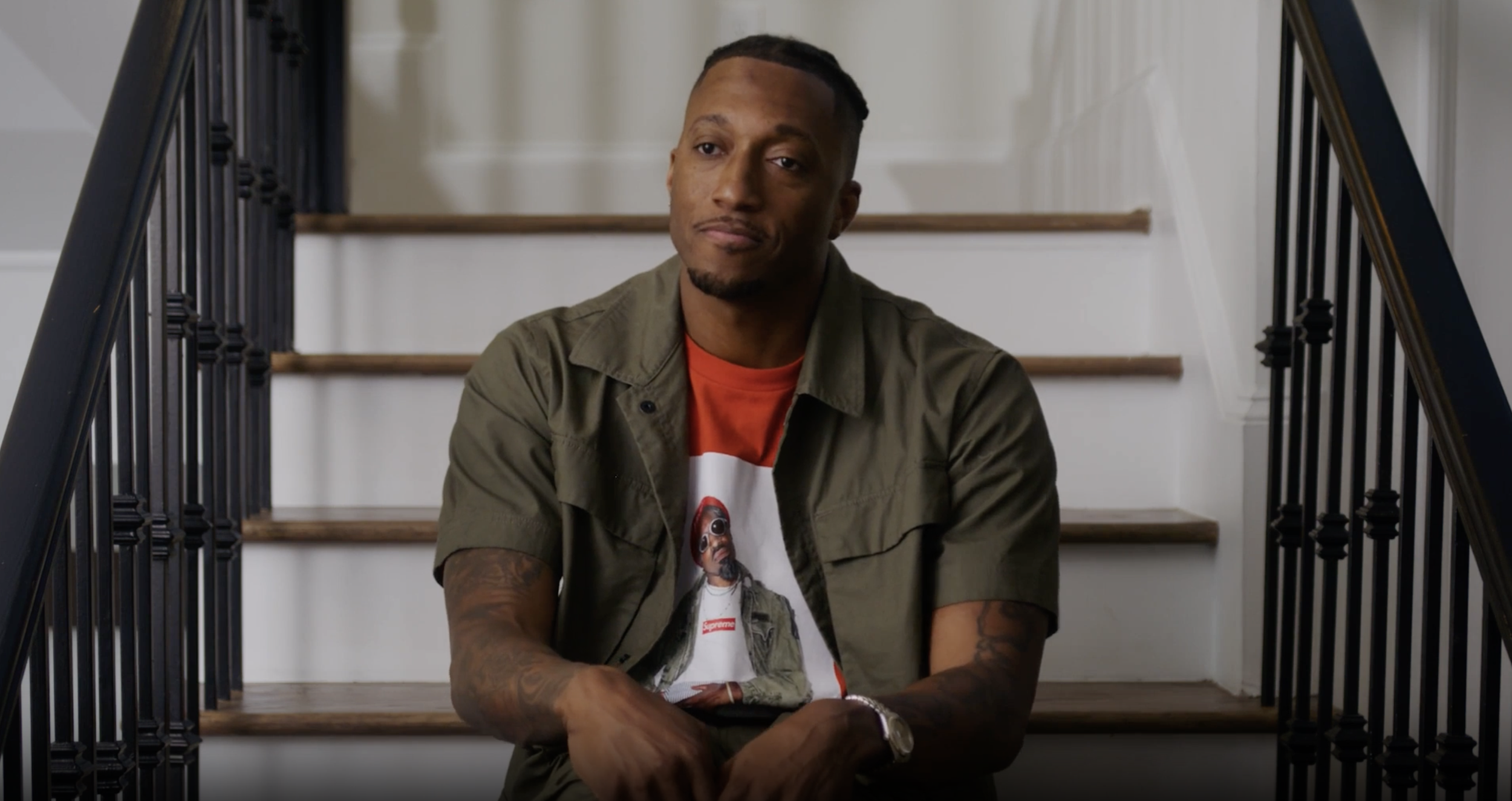
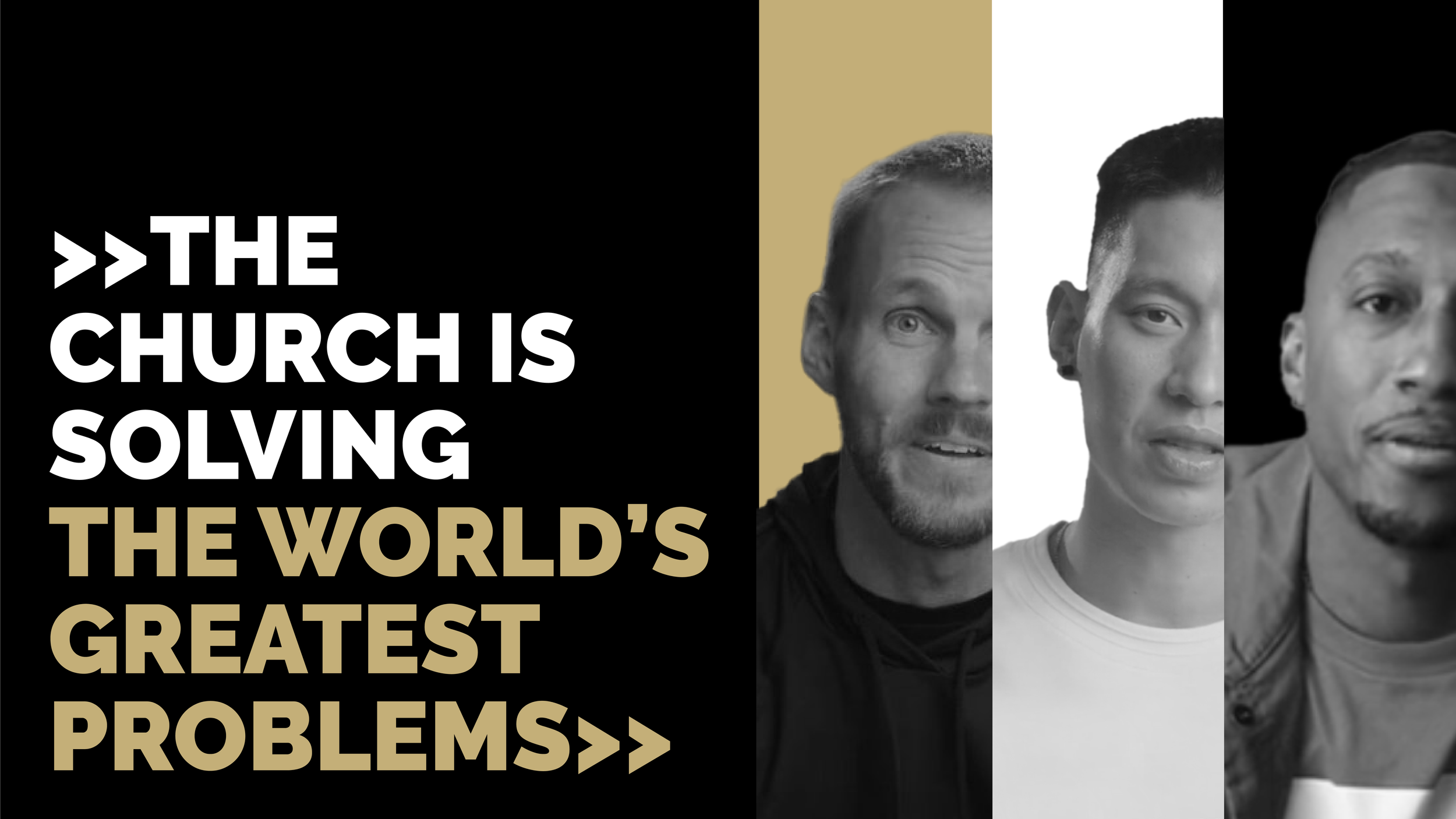
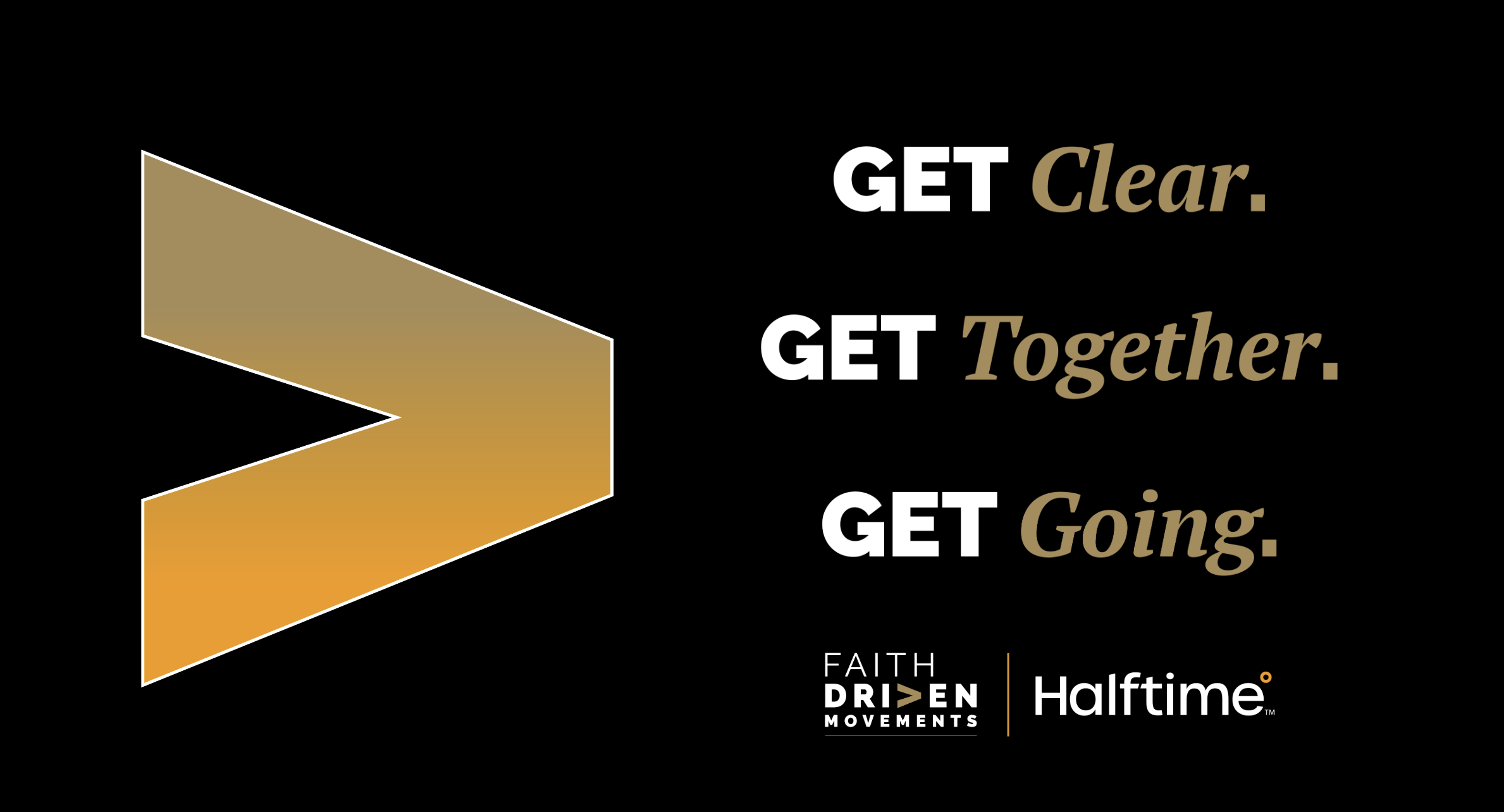
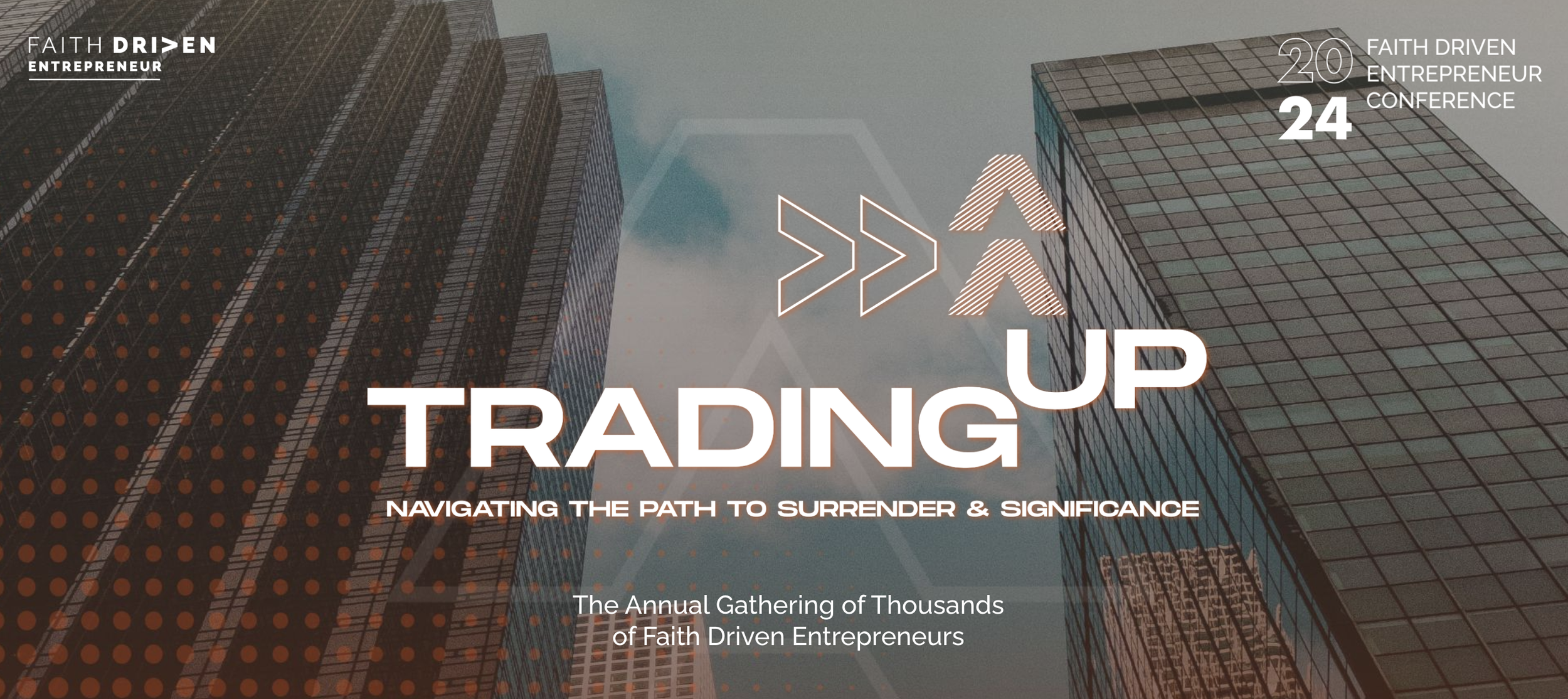
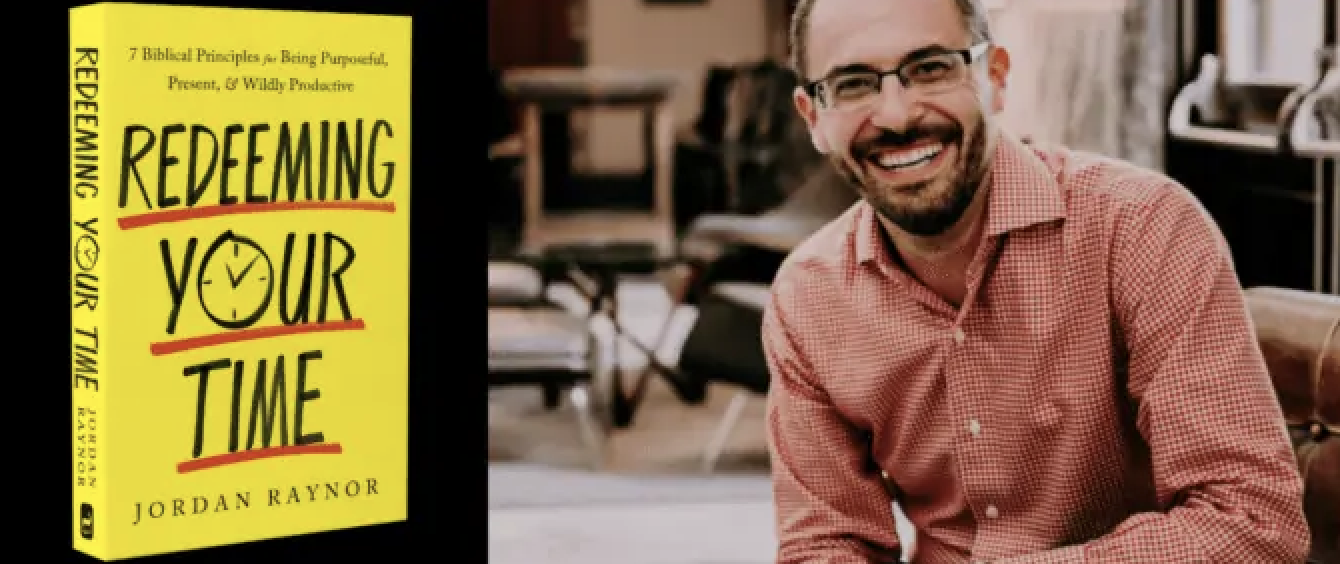
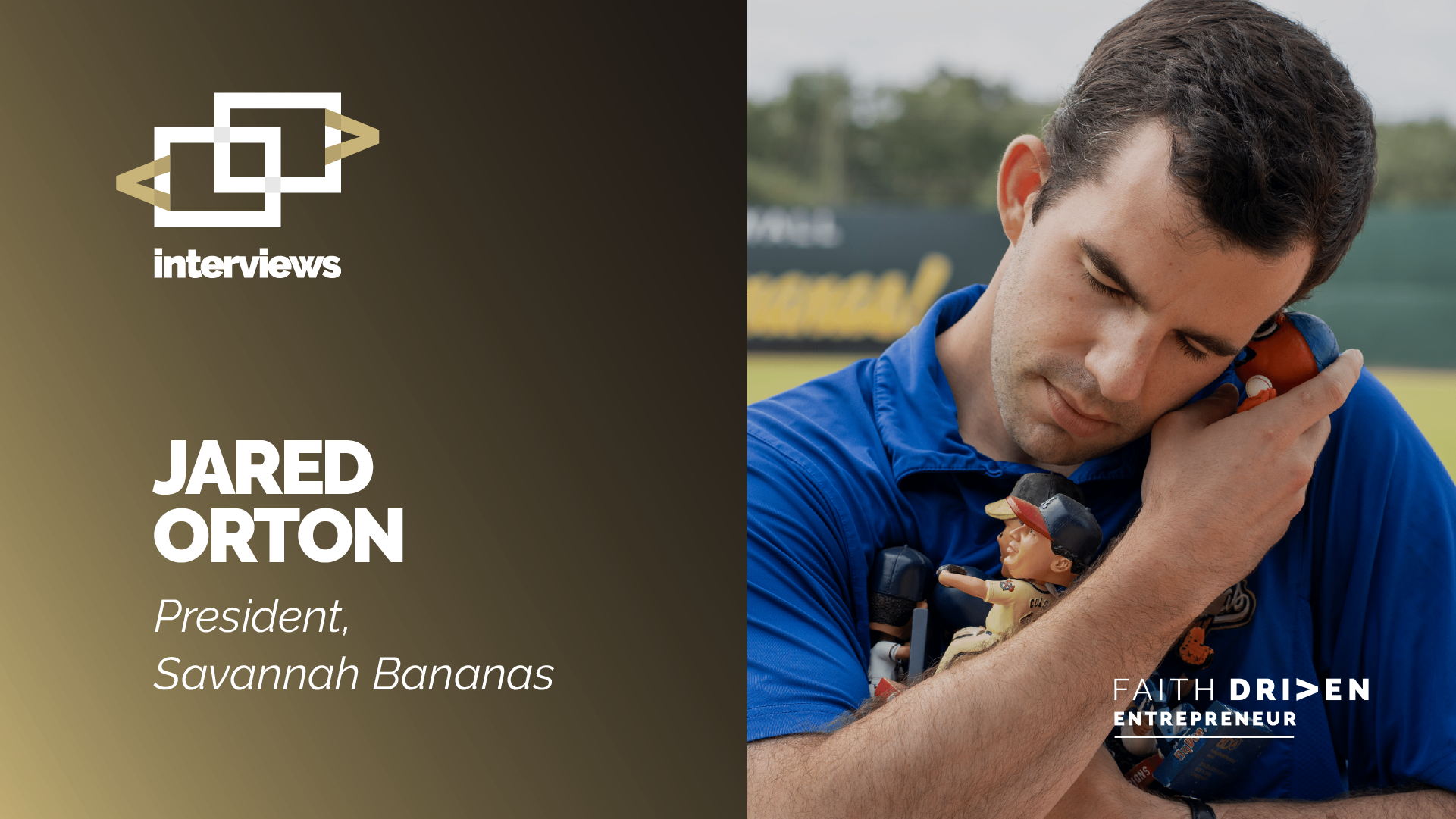
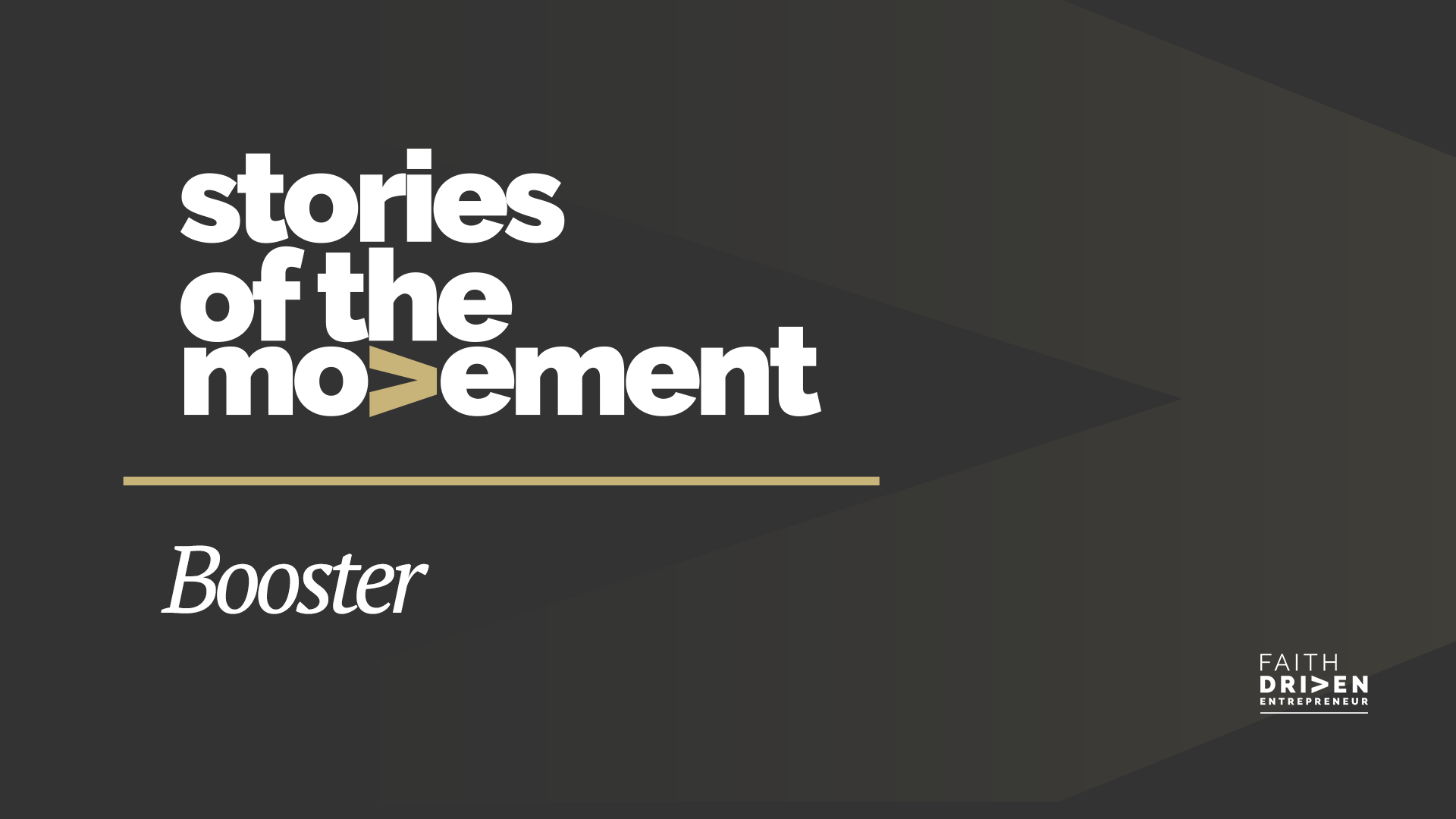
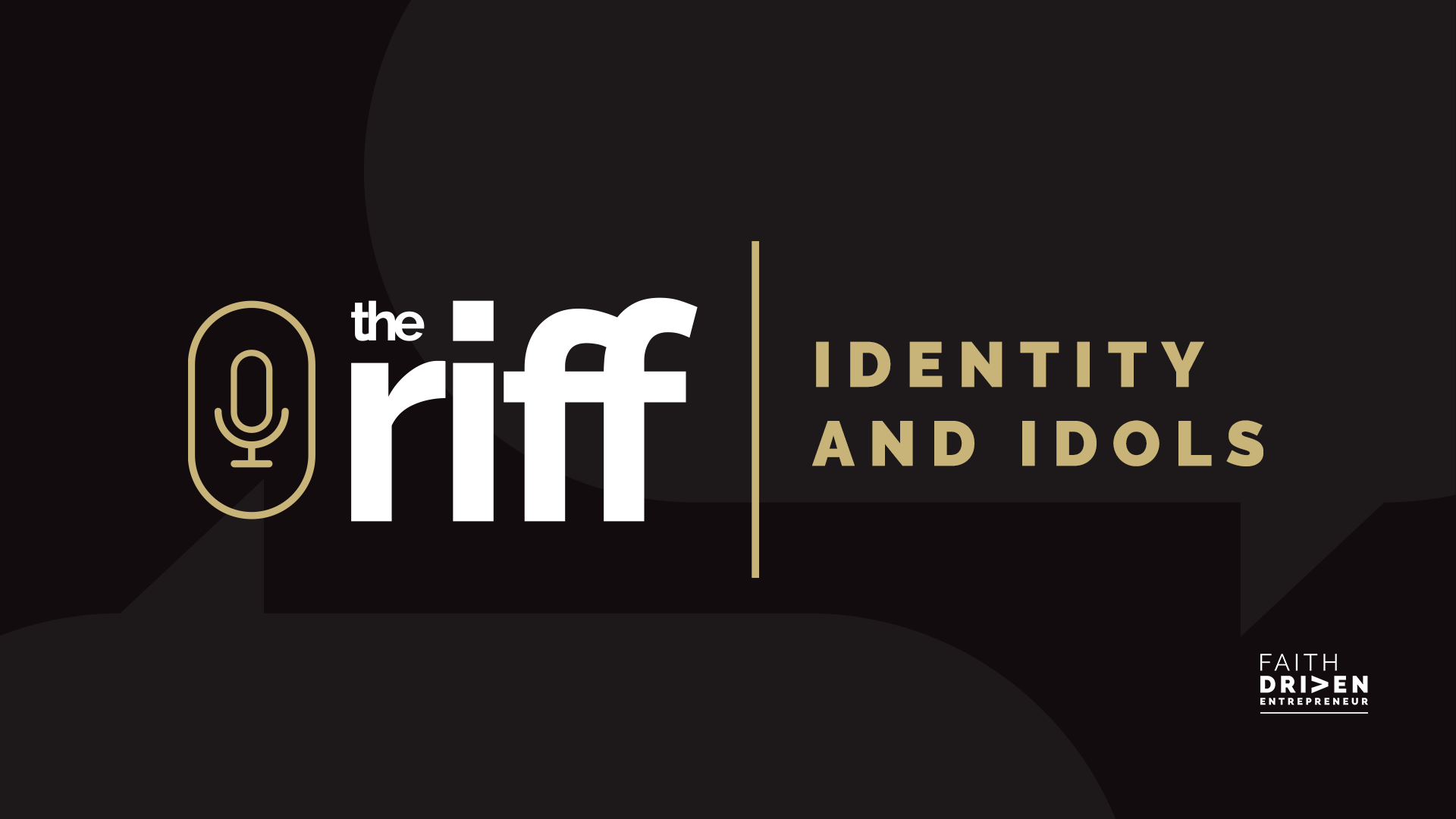
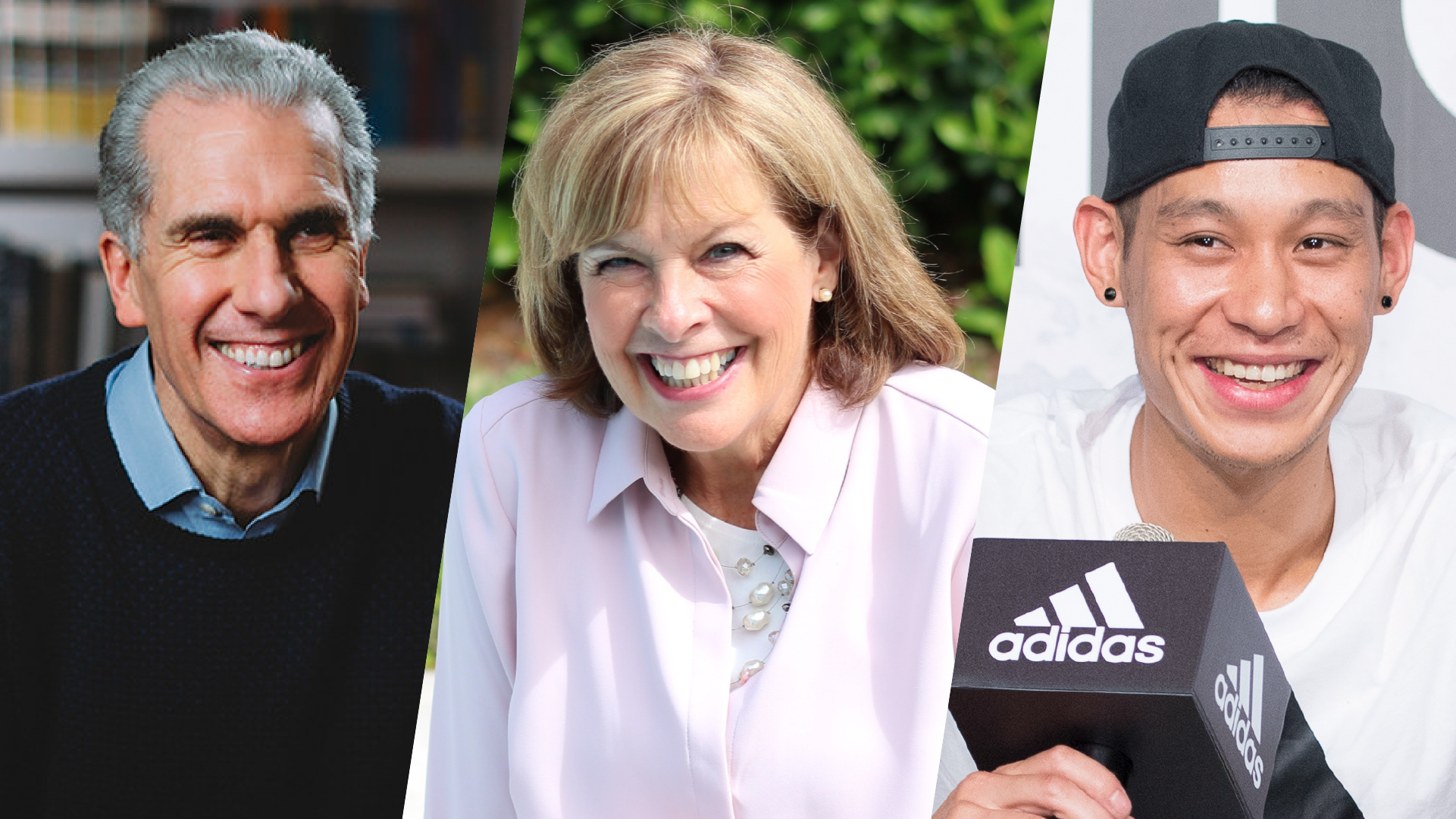
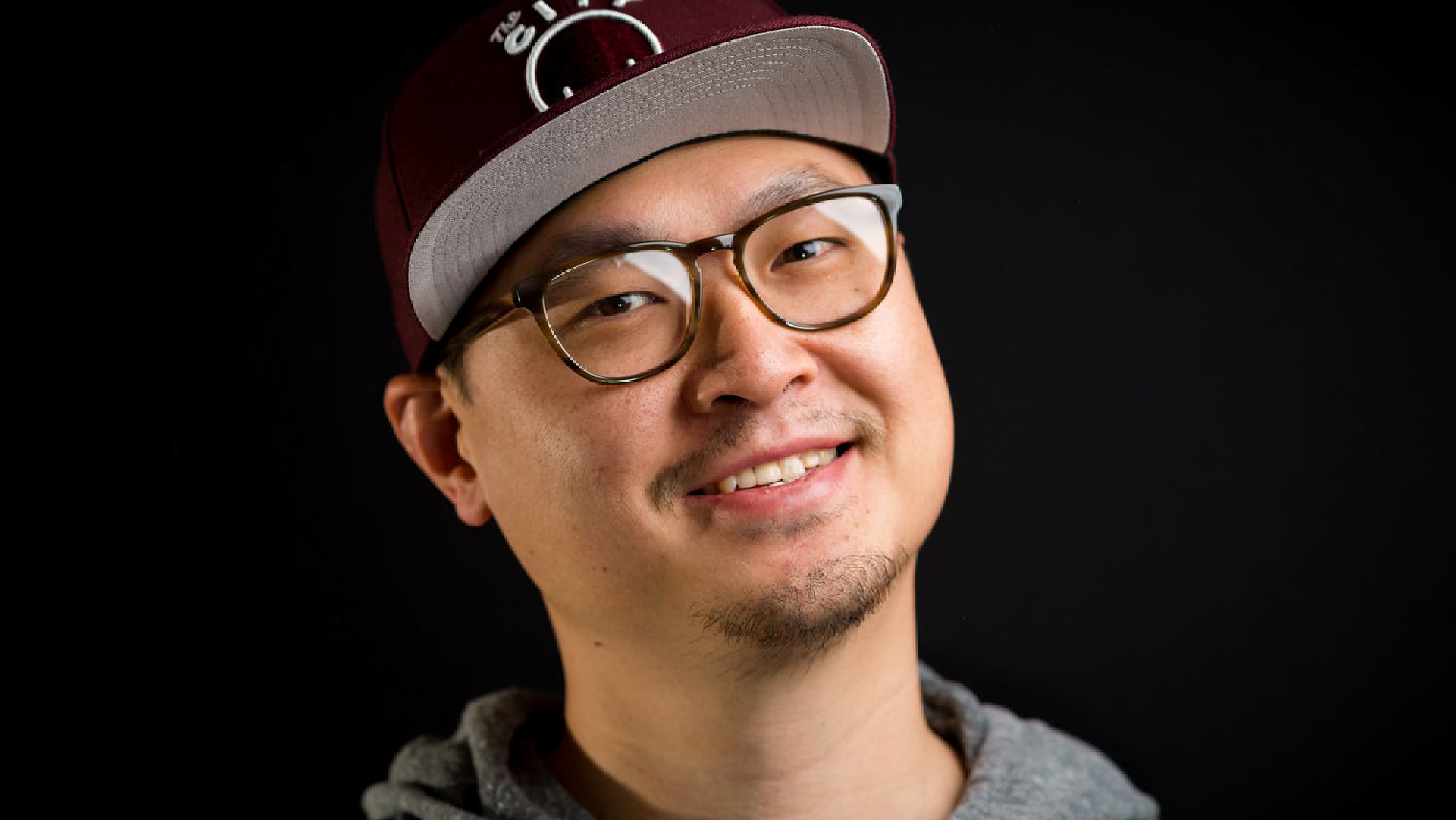
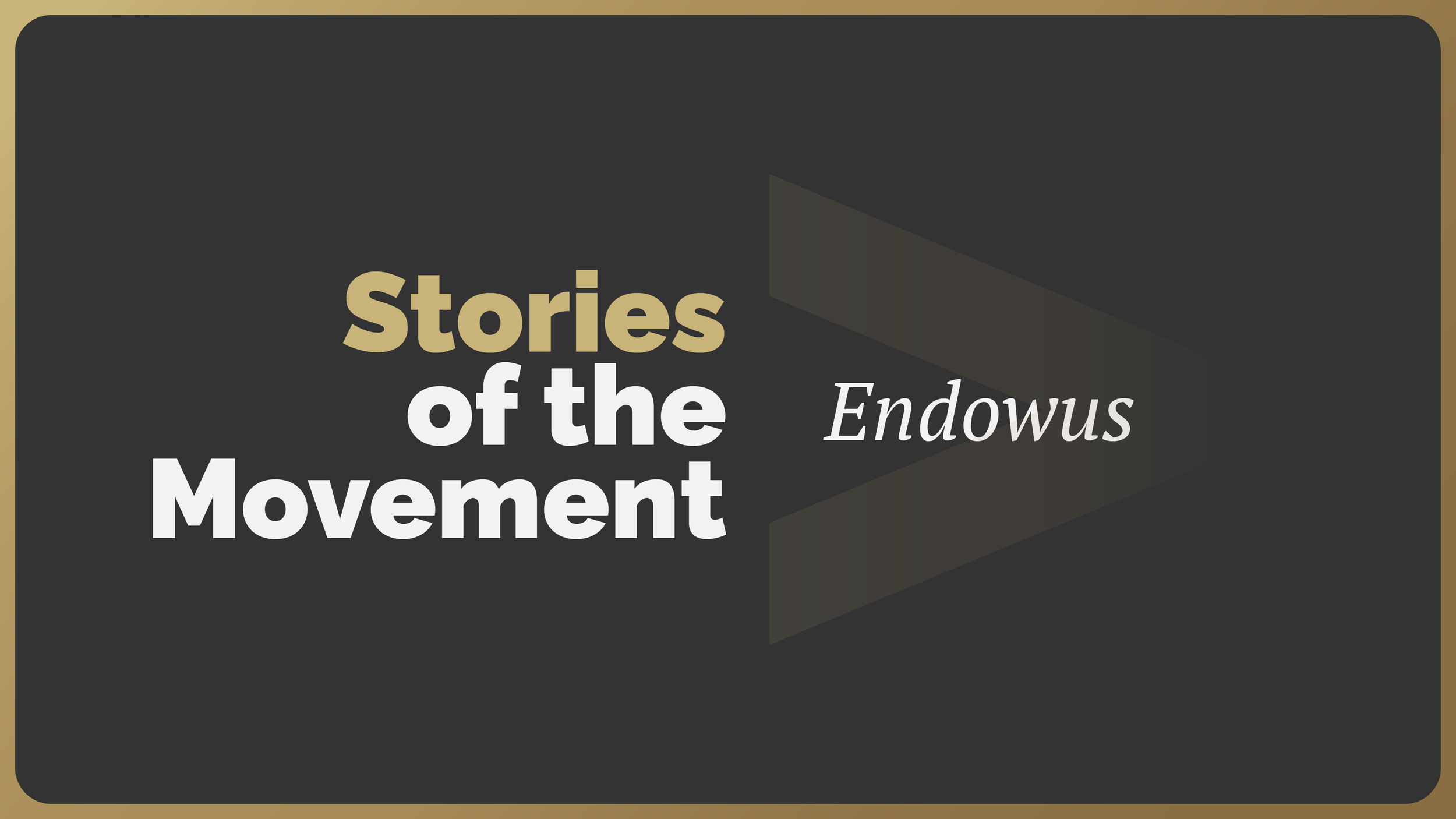

Follow the podcast